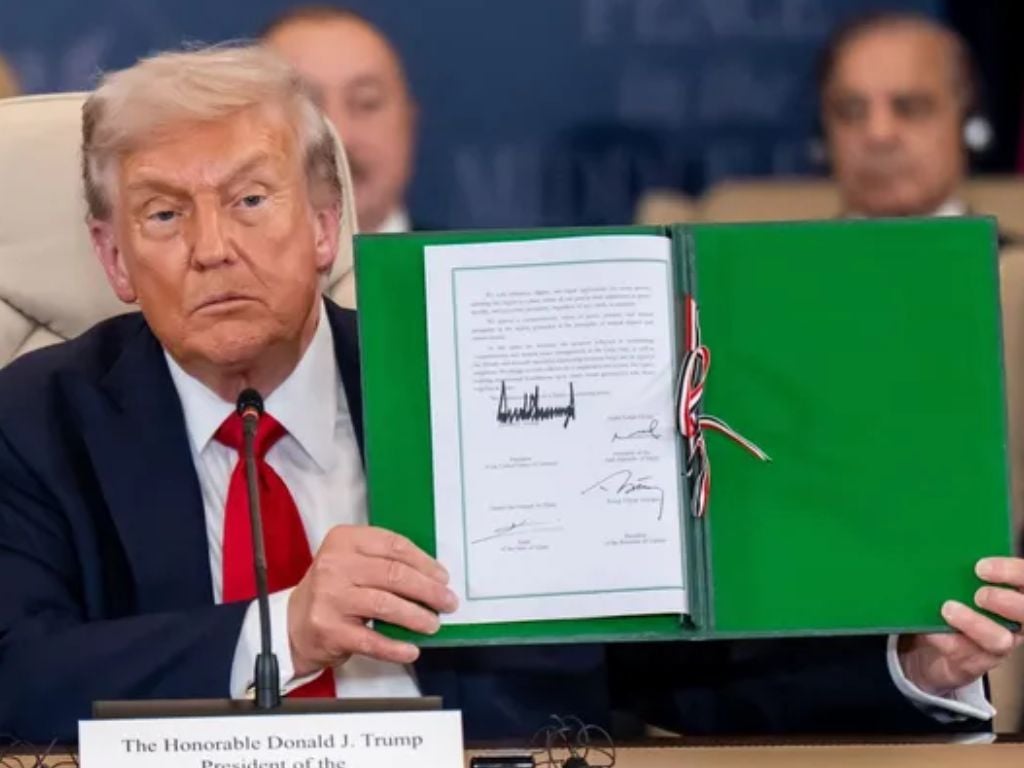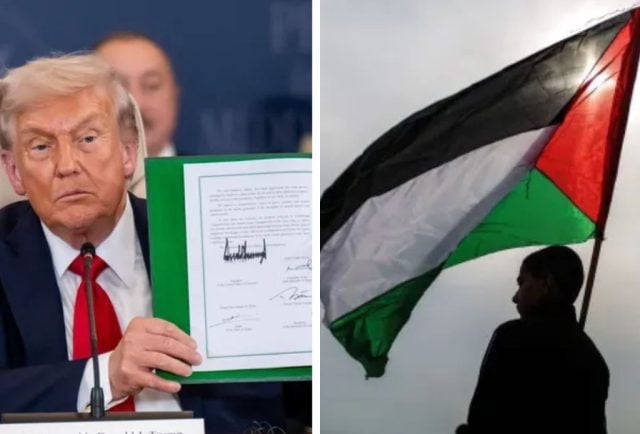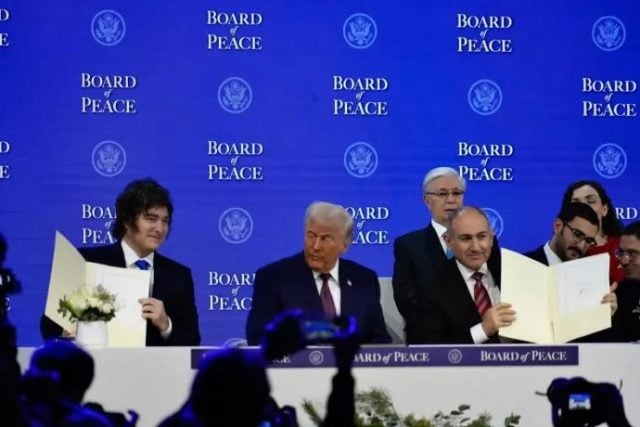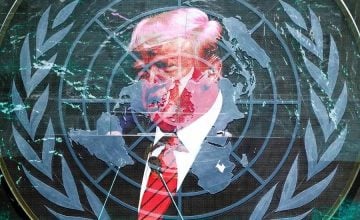Just one day after the signing of a «peace deal» his administration labeled «historic» to end two years of war in Gaza, U.S. President Donald Trump sowed doubts about the process by sidestepping any commitment to an independent Palestinian state.
On Monday, in Egypt’s Sharm el-Sheikh, Trump, co-presiding with his Egyptian counterpart, Abdel Fattah el-Sisi, over the signing of a cease-fire between Israel and Hamas, boasted that he had achieved the impossible.
«Everyone said it was impossible,» he said, referring to «peace» in the Middle East.
The accord is presented as the end point of Israel’s two-year war against Gaza—described by critics as genocide—which has left roughly 68,000 Palestinians dead in the enclave, most of them women and children, along with more than 170,000 injured.
The White House published on Monday the declaration signed by the countries mediating between Israel and Hamas—the United States, Egypt, Qatar, and Turkey—on the «peace agreement» in Gaza, where the four nations commit to implementing the pact to ensure stability in the region for both Palestinians and Israelis.
«Together, we will implement this agreement in a way that guarantees peace, security, stability, and opportunity for all the peoples of the region, including both Palestinians and Israelis. We understand that a lasting peace will be one in which both Palestinians and Israelis can thrive with their fundamental human rights protected, their security guaranteed, and their dignity respected,» the parties said.

Trump sidesteps recognition of a Palestinian state
However, the signing of the so-called «peace deal» was overshadowed before the ink dried, as questions about its future and scope surfaced from within the U.S. government itself.
On the flight back to Washington aboard Air Force One, pressed by reporters about recognizing a Palestinian state—a key issue for Gazans—Trump opted for ambiguity, prompting immediate concern across the international community.
When asked directly, the president acknowledged that the matter was not discussed during his trip to the region.
«We will see. I haven’t commented on that,» he told the press.
Trump went further, casting doubt on international consensus around a two-state solution by asserting that «a lot of people» favor a single-state outcome (Israel), while others lean toward two states.
Relegating international recognition of the State of Palestine to the background, the U.S. president focused on immediate priorities and on efforts to rebuild Gaza after two years of the Israeli offensive.
«I’m not referring to a single state or a double state or two states; we’re talking about rebuilding Gaza,» the White House occupant said, in comments reported by HispanTV.
This stance is not new. During his speech to the United Nations General Assembly, Trump described advancing a two-state solution as a «reward» for Hamas.
Trump’s position on a sovereign Palestinian state—recognized by 159 of the 193 full members of the United Nations (a little over 80%)—directly clashes with the majority view among world leaders, who argue that the Middle East will not see lasting peace without its creation.
Before attending the Sharm el-Sheikh summit, Jordan’s King Abdullah II warned about the danger of not addressing the underlying problem.
«I hope we can step back, but with a political horizon, because if we do not resolve this problem, we will return to the same old cycle,» the monarch said, asserting the region has witnessed numerous failed peace attempts and that implementing a two-state solution is the only answer.
Twenty-four hours after the signing, the Trump-promoted «peace deal» reveals cracks: the U.S. refusal to endorse the two-state principle, combined with a premature victory lap, not only breeds skepticism but also sets off alarms about implementing a political solution that tackles the root of the conflict.










